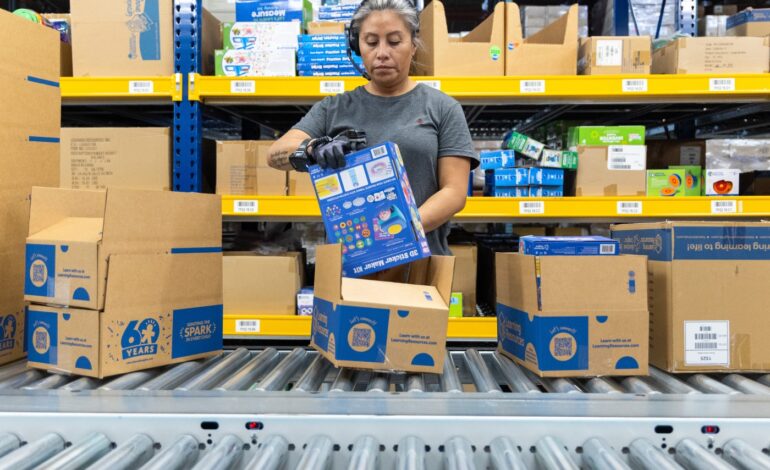Vernon Hills Toymaker Challenges Trump Tariffs in Supreme Court

In a pivotal legal battle, toy manufacturer Learning Resources from Vernon Hills, Illinois, is challenging the legality of tariffs imposed by the Trump administration on imports from China. The company, which produces about 50% of its products in China, has taken its case to the U.S. Supreme Court, with a hearing scheduled for November 5, 2023. The tariffs, which surged from approximately 20% to around 104% in April, have placed immense financial pressure on the business.
CEO Rick Woldenberg, who holds a law degree from the University of Chicago, initiated the lawsuit after the administration’s tariffs significantly impacted operational costs. In May, a federal court ruled in Woldenberg’s favor, stating that the tariffs were unlawfully imposed under the International Economic Emergency Powers Act. However, the tariffs remain in effect while the Trump administration appeals the decision.
Woldenberg expressed his determination to contest these tariffs, stating, “We believe the tariffs are unlawful. That’s why we went to the Supreme Court. Rather than reshape our company to suit the needs of politicians, we’re trying to assert our rights as citizens so that we can continue to run our business according to our good judgment.”
The implications of these tariffs extend beyond Learning Resources. An analysis by the JPMorgan Chase Institute indicated that American companies could face direct costs of approximately $82.3 billion, often passed on to consumers through price increases, layoffs, or hiring freezes. As noted by Steven Durlauf, an economics professor at the University of Chicago’s Harris School of Public Policy, American businesses typically absorb around 80% of these costs, resulting in reduced sales and investment in domestic production.
Woldenberg’s company has felt the impact directly. While he has not laid off employees, he has halted hiring for vacant positions and implemented a price increase of around 5% on some products. The company also postponed a planned investment of $600,000 in warehouse infrastructure and employee training. “The more they charge us in tariffs, the less we have to spend on our people here,” he stated.
Despite the economic strain, Woldenberg remains committed to maintaining the legacy of his family’s business, which has operated in the Chicago suburbs since 1916. Originally focused on laboratory equipment, the company transitioned to manufacturing educational toys in the 1960s. Today, Learning Resources exports toys to over 100 countries and employs approximately 500 individuals.
The mixed reactions to tariffs within the manufacturing sector have added to the complexity of the situation. Mark Denzler, president and CEO of the Illinois Manufacturers’ Association, noted that while some businesses have struggled, others have welcomed the tariffs as a means to combat unfair competition. He emphasized the need for stability in policy, stating, “Businesses like certainty and it’s difficult for them to plan effectively with the changing announcements.”
As Woldenberg navigates these turbulent waters, he reflects on the broader impact of his company’s work. “The community that we live in, and millions of children have their educational trajectory affected by what we do,” he said. He remains focused on the mission of his company, which not only seeks to thrive amid legal challenges but also to positively influence the lives of children through innovative educational tools.
With the Supreme Court’s decision looming, the outcome could reshape the landscape for American manufacturers facing similar challenges. Woldenberg’s battle against the tariffs is not just a legal fight; it represents a broader struggle for many businesses caught in the shifting sands of trade policy.






